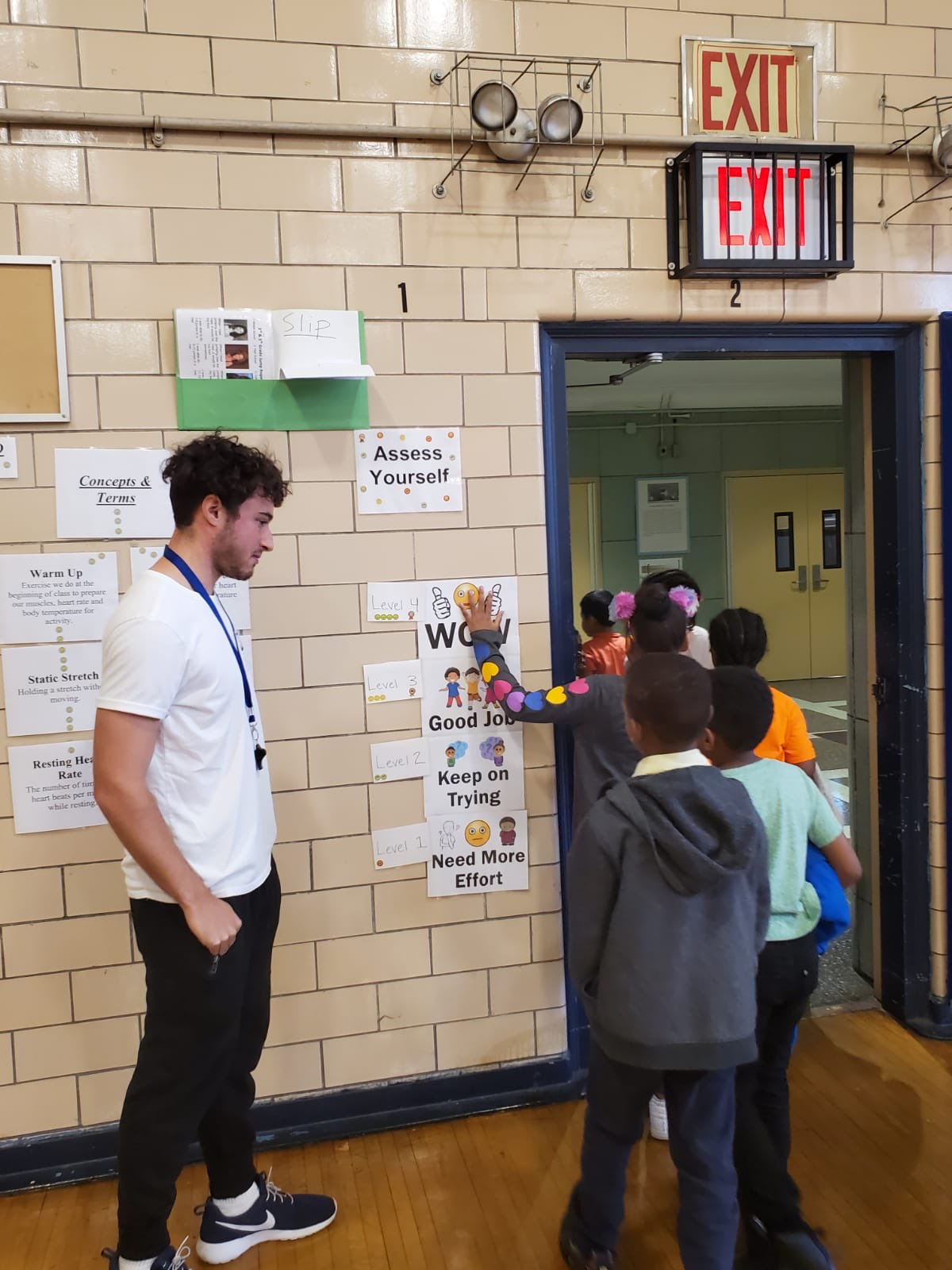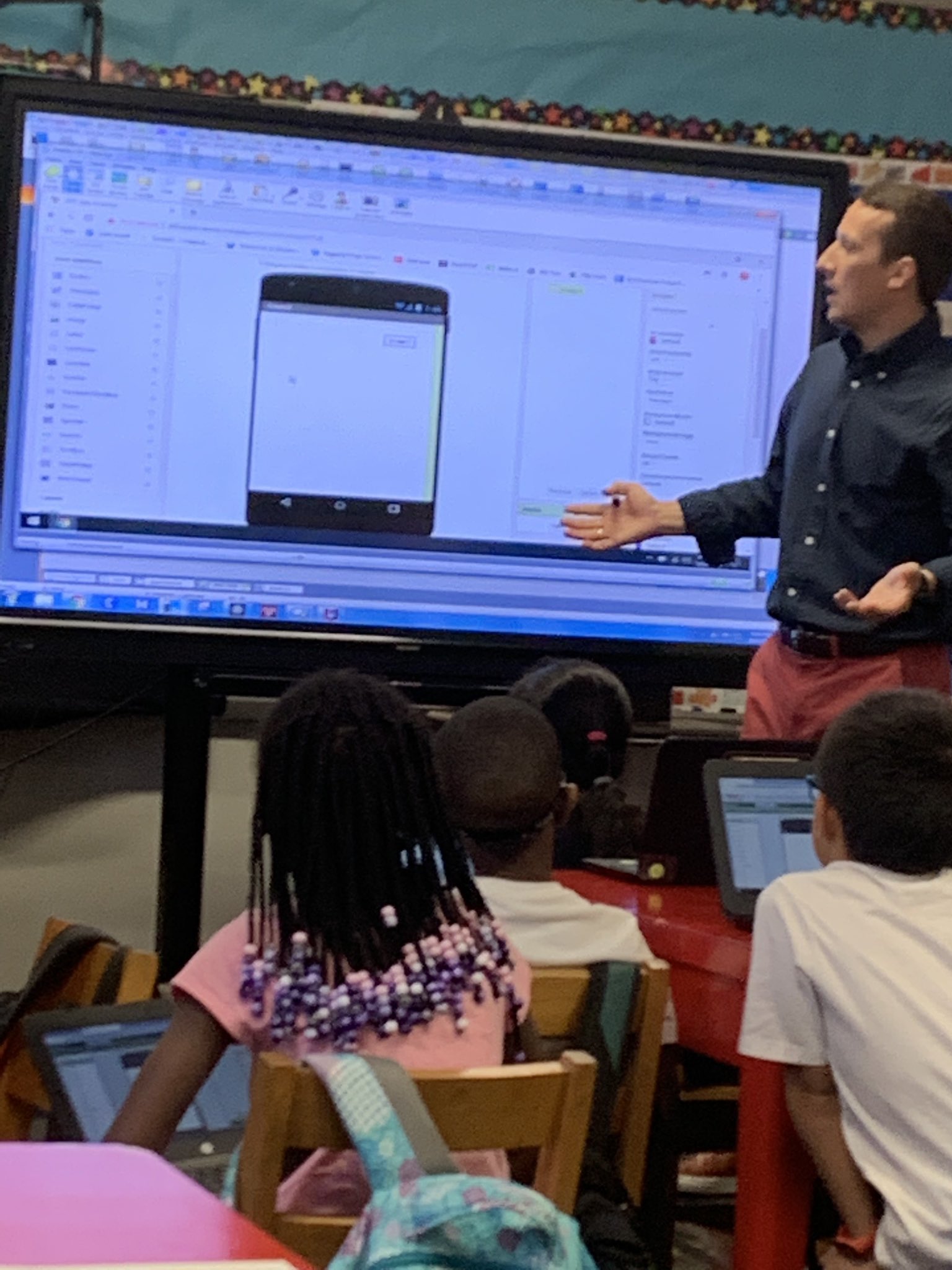About Us
- Into Reading
- Envisions Math
- Amplify Science
- NYC Social Studies Passport
- Kahoot
- Peardeck
- Jamboard
- Socrative
The Robin Hood Library Initiative was a partnership with the Robin Hood Foundation, a New York City nonprofit that fights poverty, and the New York City Department of Education. In the early 2000's, Robin Hood had worked to improve city schools by helping to fund the construction of libraries in some of the city's elementary schools. The goal of this collaboration was to improve literacy by revitalizing school libraries. Through this initiative, participating elementary school libraries were remodeled and provided opportunities to learn library science and research. At P.S. 287 we have partnered with the Brooklyn Public Library Program to provided diverse opportunities access literacy outside of school hours.

Physical education is a required academic subject that teaches participation in lifelong, health-enhancing physical activity. In physical education, students learn to work as a team, develop healthy personal fitness habits, and set fitness goals now and throughout their lives. PE is not recess, or a before- or after-school sports club.
PE is:
- A regular class scheduled during the school day.
- Taught by a certified, licensed DOE teacher.
- Instruction on a wide range of skills, not just sports .
- Based on a curriculum, with established learning standards

All students are curious about the world in which they live, which makes them natural scientists. Science helps them make sense of the world around them. It provides opportunities for students to investigate this world and explain how and why things happen. As they engage in the work of scientists, they
- observe
- ask questions
- collect data
- construct explanations
- predict
- experiment
- reach conclusions, and
- communicate their discoveries
In our schools, students study physics, chemistry, biology, earth science, astronomy, and ecology. In our science classrooms, students develop an understanding of the interdependence of living things as well as a respect for nature. They study their local environment but they think globally. They use problem-solving skills to find solutions to a variety of real-world problems. They share ideas, work together, read informational texts, make presentations and challenge each other to think creatively. They integrate reading, writing, listening, discussion, and mathematics as they learn science.
 At P.S. 287 our eSTEAM curriculum is a strategically designed program that aims establish a diverse and inclusive learning experience for all students ages 4 to 11 in the areas of entrepeneurialship, science, technology, engineering, art, and math. Our eSTEAM curriculum includes and is not limited to:
At P.S. 287 our eSTEAM curriculum is a strategically designed program that aims establish a diverse and inclusive learning experience for all students ages 4 to 11 in the areas of entrepeneurialship, science, technology, engineering, art, and math. Our eSTEAM curriculum includes and is not limited to: - Programming
- App Design
- Google classroom integration
- Drone technology
As a learning community our desire is to provide a holistic educational approach by introducing our students to the broad range of eSTEAM learning opportunities.
